14th International Literature Festival Ruse 2021 “The Breath of Europe”
LITERARURE FESTIVAL RUSE is the oldest international literature festival in Bulgaria. Over the years it has attracted famous representatives and winners of prestigious awards, as well as young and innovative writers. It is a trademark in an international context. Authors from almost all european countries have participated in the festival. It provides a creative atmosphere to present literary works and discuss projects. As one of its highlights the festival features authors and artists which were nominated for the Elias Canetti Literature Award.
The Literature Festival Ruse is a utopian space that promotes cultural diversity in the region, offering a variety of languages as well as literary and artistic genres related to literature. It is open to all who wish to immerse themselves in its magic, and encourages international contacts in the field of culture and art.
The 14. Literature Festival will take place from the 1st to the 17th of October 2021 in Ruse under the motto „The Breath of Europe“.
The COVID-19 pandemic has changed the way of life and our attitudes have changed considerably. It has also given this „breath“ different dimensions. As the Elias Canetti Literary Award will be awarded this year, the nominated writers will participate in this festival. We hope this presentation will have a resonance in other festivals.
OCTOBER 1st, HOUSE CANETTI, 6 PM

Yordan Kissiov was born on January 19, 1945 in Bisertsi, Razgrad region. He graduated from the Art High School in Sofia in the class of Dimitar Arnaudov, and then graduated in monumental (mural) painting at the Faculty of Fine Arts at the University of Veliko Tarnovo. In 1973 he joined the Art Gallery in Silistra as a curator and from 1990 to 2013 he was its director.
Since 1972 he has regularly been participating in the National Exhibitions in Bulgaria and in representative shows of the Union of Bulgarian Artists abroad: Mexico, France, Russia, Italy, Egypt, Spain, Portugal, Romania, Poland, Hungary, India, Germany, etc.
YORDAN KISSIOV – EXHIBITION
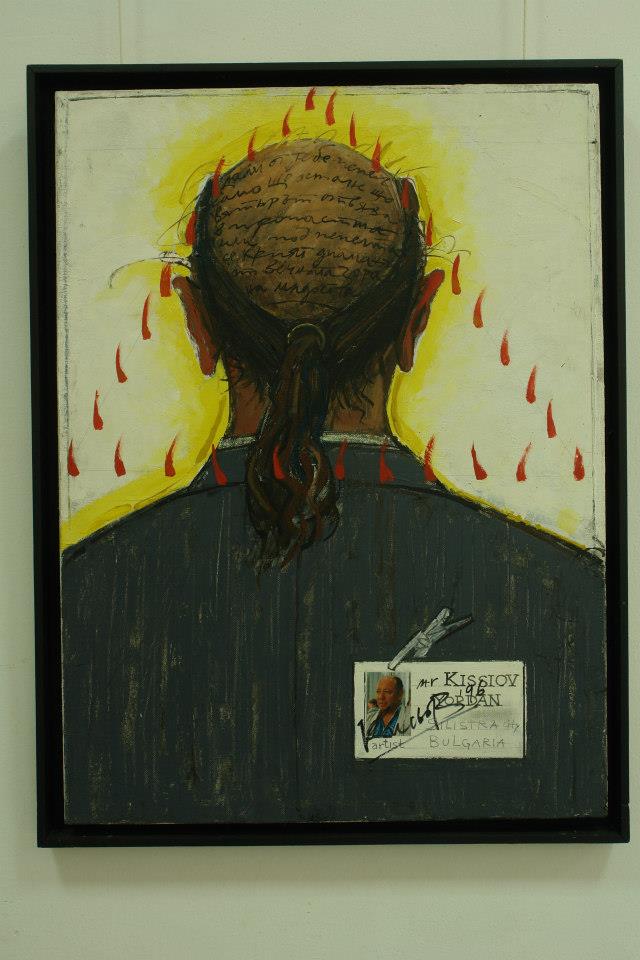
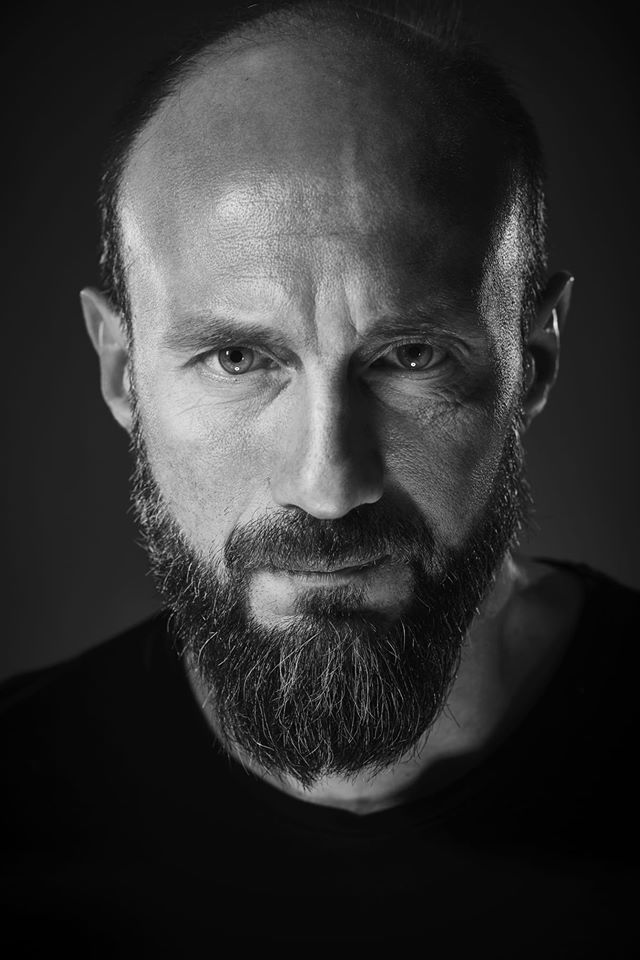
Momchil Nikolov (b. 1970) graduated in medicine, but for the past fifteen years has been primarily dedicated to writing. He has published eight books: Travelers (a novella), Short Stories, Fragments of a Room (short stories), Mad Doris (short stories), Hash Oil (a novel), The Top Floor (a novel), The Spherical Fish (a novel), and Machinery for Love (a novel).
All of Momchil Nikolov’s books have gone through multiple reprints and enjoy wide popularity among readers and critics. He has won numerous literary awards, including the most prestigious prize in Bulgaria, the Helicon Prize, for The Spherical Fish.
READING, 7 PM
Checkmo – 517 pages of monologue, a conversation with the clock, with time that cannot be stopped but can be made sense of. A book where we can talk about “making sense” of the immediate past. It begins with the so-called Vazrojdenski proces (revival process), about the pressure exerted on the population, presented from the point of view of an “involuntary participant”, who resisted the militia but was forced to cooperate. Whether “overcoming” will result from this reflection remains an open question, or more precisely, the question arises as to which system drove children out of Bulgaria.
“The quiet life was not for us. Everything had to be extraordinary, wild, unhinged, one big adventure we would embark on together. And I think the decision to have that big adventure together was made right then, in that place, at the Checkpoint Charlie Museum. I understood, I felt it, that no matter what I did, wherever I went, she would follow. We both wanted that freedom so much that we could have stayed as exhibits in that museum, even though we hadn’t overcome the Berlin Wall. We had overcome another wall, no less difficult – the one that’s in every man and makes him stop in front of it, go around it, choose the easier way – where everybody goes, and obstacles, at least seemingly, are not in sight.”
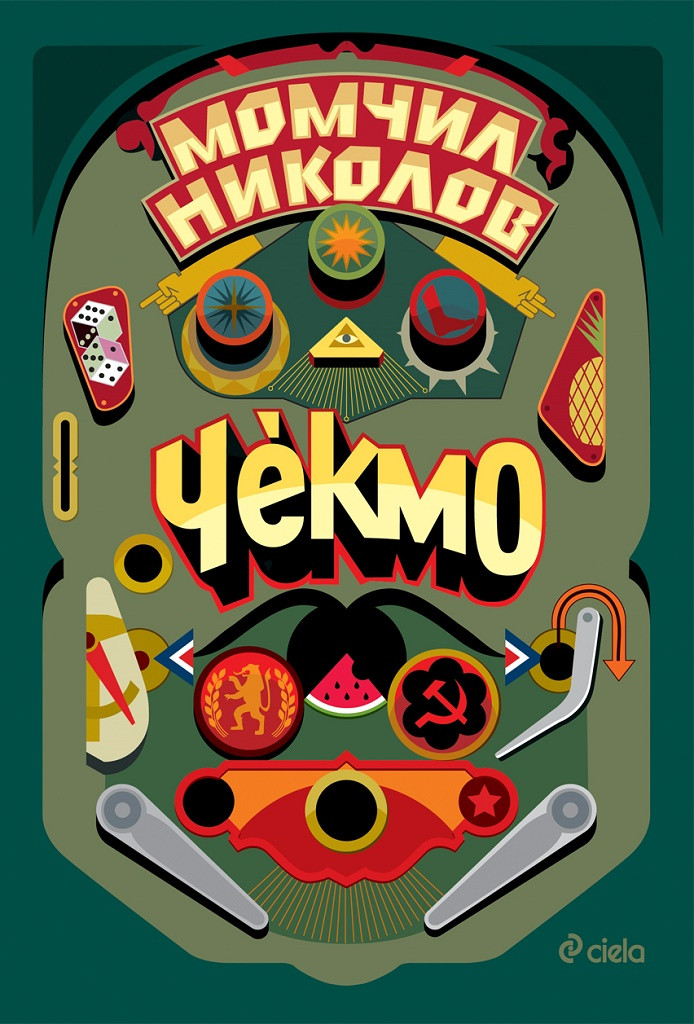
OCTOBER 2nd, HOUSE CANETTI, 6 PM
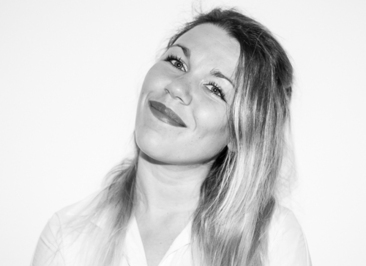
Phelia Barouh is the Co-Founder and Curator of the photography festival Foto Fabrika in Sofia, Bulgaria. She is currently working on a personal project and her first book called Palermo. Box. Me. as a result of an art residency in Palermo, Sicily. She has been studying in Brussels, Madrid, Sofia and Mexico City. Phelia Barouh is twice finalist of the Canon Picture of the Year contest in Sofia, Bulgaria and once of the EFTI photo contest in Madrid, Spain.
EXHIBITION AND PHOTOBOOK
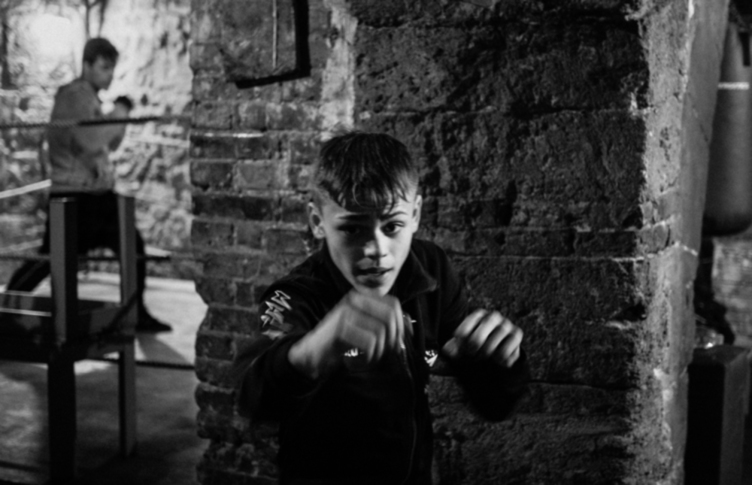
PALERMO. BOX. ME. – exhibition and photobook
“This is a story. It speaks about wins and losses. About the marks that we carry with us – on our faces, in our hearts. A story about the road, about random meetings and a definite separation. In an unknown city, on an old island. This is a story about the battles – mostly the ones we’re fighting with ourselves.
This is my story, but it could’ve been yours as well. I’m glad I told this story because it takes a lot of strength to recognize when you are weak.”
OCTOBER 3rd, HOUSE CANETTI, 6 PM
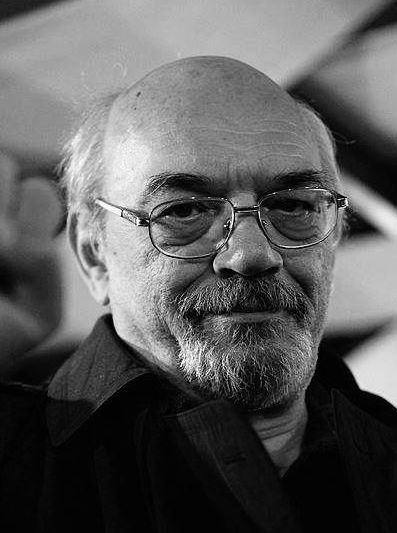
Hristo Karastoyanov, born 22 February 1950 is a contemporary Bulgarian novelist. Born in Topolovgrad, he studied Bulgarian Philology at Plovdiv University and made his debut in 1981 with the “Cracked Asphalt”, stories. He is a member of the Bulgarian Writers’ Union, he works and lives in Yambol. He is the author of 26 books – fiction, political journalism and poetry. His novel “Autopia: The Other Road to Hell”, (2003), is in the list of the first five books, nominated for the Vick Foundation award. Others of his books have been nominated for the award of Helikon Bookstores, these include his latest novel “The Name”, 2012. He has been awarded a number of literary prizes, among them the award of Bulgarian Writers’ Union for “Notes on Historical Naiveté”
READING
Hristo Karastoyanov’s novel T for Tashkent can be counted as part of a trilogy that includes two other works One and the Same Night and Life Has No Other Half . At the same time, it is also a narrative that unfolds the larger political context of the events not only of the two novels, but also of the three books of Teufelszwirn. With T is for Tashkent, the author achieves that density of his long-standing interest in one of the most obscure and misrepresented periods of Bulgarian history that allows him to create a convincing and truthful interpretation of it in an artistically fictional way. The narrative follows the fate of a Bulgarian journalist who, with the tutelage of State Security, is allowed in the early 1950s access to deeply classified archives relating to events in Bulgaria in the 1920s. Uncovering the documentary truth about them leads him to unexpected encounters with figures of the past, but also to the question of the fate of those who know the truth. In a world behind-the-scenes in which the long arm of the Soviet secret services is monitors Bulgarian public life, whether before or after September 9, 1944, the bearers of truth and decent behaviour are doomed, and the political players who take advantage of the situation write history with their longevity and lack of morality.
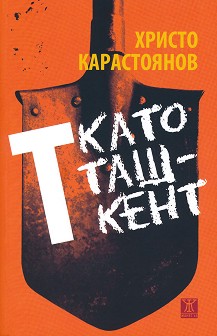
OCTOBER 5th, HOUSE CANETTI, 6 PM
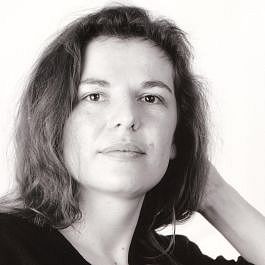
Margret Kreidl was born in Salzburg. She lives in Vienna and works as a freelance writer. Since 1990, her plays have been performed at home and abroad, most recently in 2016 at the National Drama Centre in Montpellier. She has written numerous radio plays for ORF and her books have been published regularly since 1995. She has been writer-in-residence in Germany, Serbia and Switzerland and guest professor in the USA. She has won several awards and fellowships for her work, such as the Elias Canetti Fellowship of the City of Vienna in 2016 and the Federal Chancellery Award for Outstanding Artist in Literature in 2018. She recently won the City of Vienna Literature Prize for 2021.
READING
„EINLEUCHTEND WEISS“
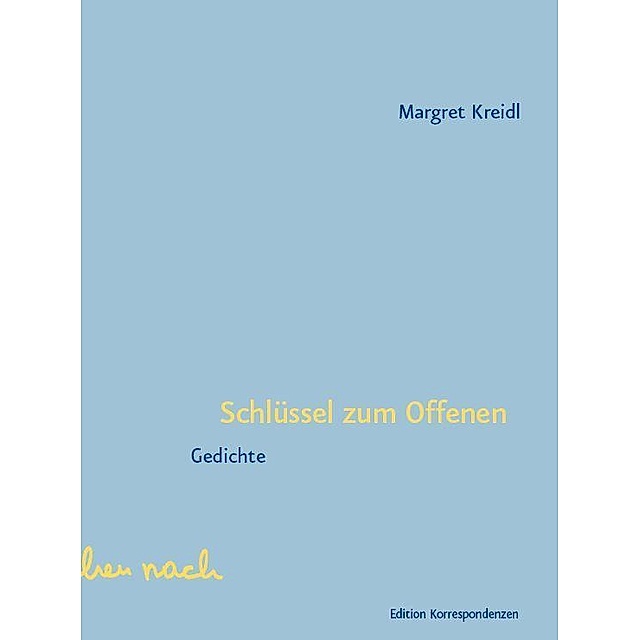
For Margret Kreidl, games and rules go together, especially in the poem. In Key to the Openness, she literally uses G-E-D-I-C-H-T / P O E M as a code word for her seven-line poems. With these strict terms, she makes the possibilities of lyric speech visible: free verse, rhymes, lists, references. The author locates her writing in time, in confrontation with a society whose crisis is reflected in language. She always understands the poem as a dialogue with others, with literature, art and media. Thus we encounter Anne Carson and Candy Crash, vivid motifs from fairy tales, tendentious bears and trolls, wandering doughnuts, Hinkjambus and the Turkish word “haymatloz.” The pleasure of the words and the associative visual power of G E D I C H T not only inspire our imaginations but sharpen our minds. Margret Kreidl’s acrostics in her poetry series Key to Openness show us how productive self-restraint and self-limitation is for our present.
OCTOBER 6th, HOUSE CANETTI, 6 PM
Amanda Lasker-Berlin was born in Essen in 1994 and lives in Frankfurt am Main. She directed her first play at the age of 18. After graduating in humanities from the Bauhaus University in Weimar, she studied directing at the Academy of Fine Arts in Baden-Württemberg. Her plays and prose have won several awards. Her debut novel Elijas Lied (Frankfurter Verlagsanstalt) received the lit.COLOGNE 2020 Debut Prize and was nominated for Das Debüt 2020 – Bloggerpreis für Literatur.
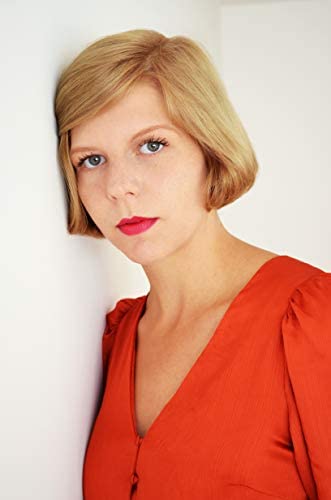
READING
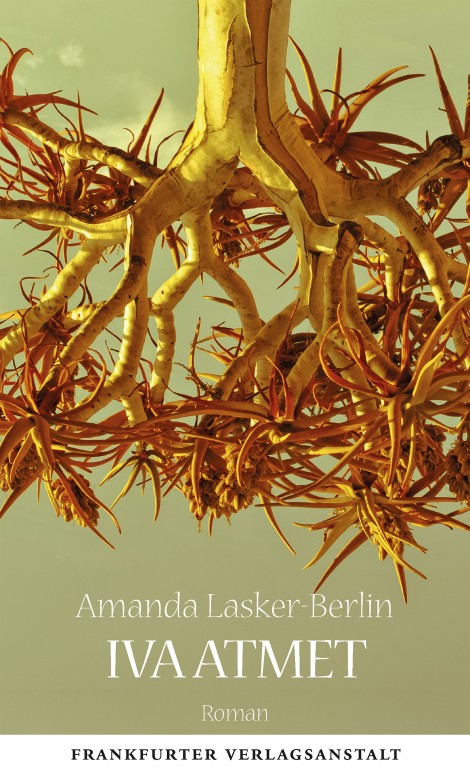
“Iva Breathes” is her second novel….
The trees quietly shade the family home in Dresden, to which Iva returns for the first time in many years. Her father, an influential judge, coated the two dead giant trees there, in concrete, in memory of her grandmother’s childhood under German domination in South West Africa, now Namibia. The moment the father dies, old images and memories come flooding back to Iva: questions about the past during the Third Reich, the conspiratorial meetings where the father raises toasts about old times she overheard as a child. As the contours of the perpetrating family become clearer and clearer, Iva can no longer catch her breath. With Iva Breathes, Amanda Lasker-Berlin addresses important social issues: the personal meaning of historical guilt, family silences, and German colonial crimes. Without pathos or ostentation, but with great ease and vividness, the author weaves her material into a moving story.
OCTOBER 7th, HOUSE CANETTI, 6 PM
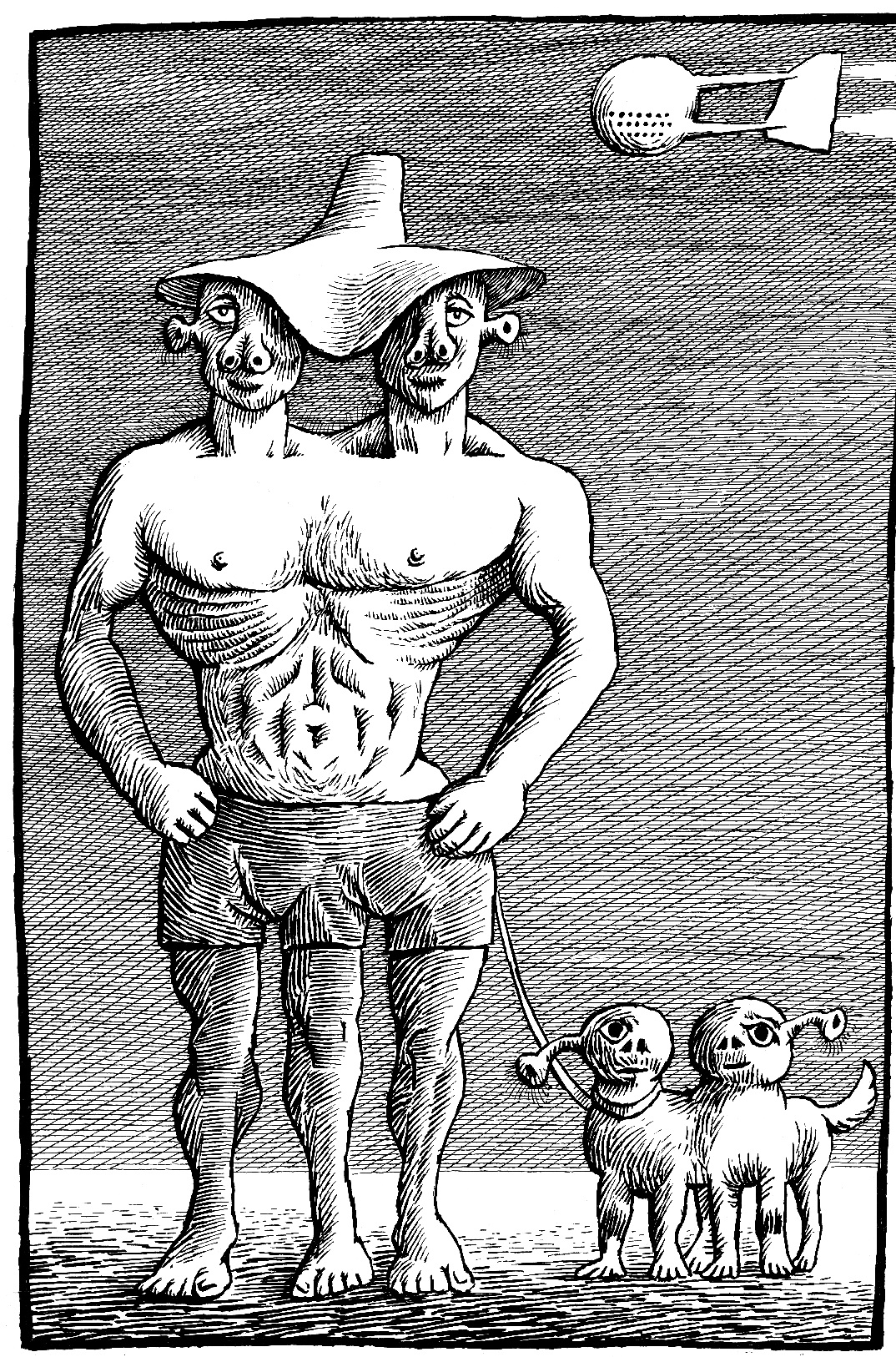
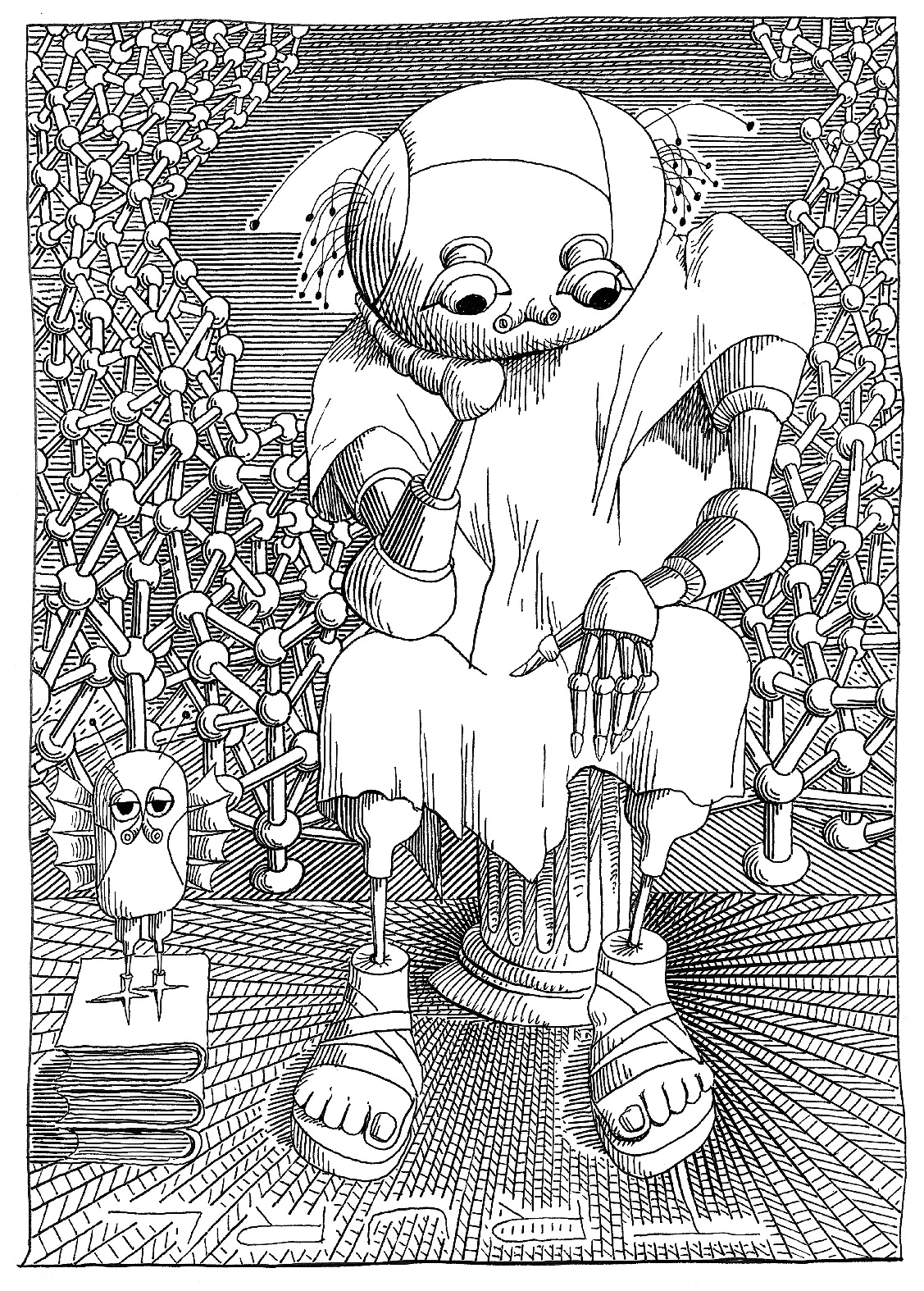
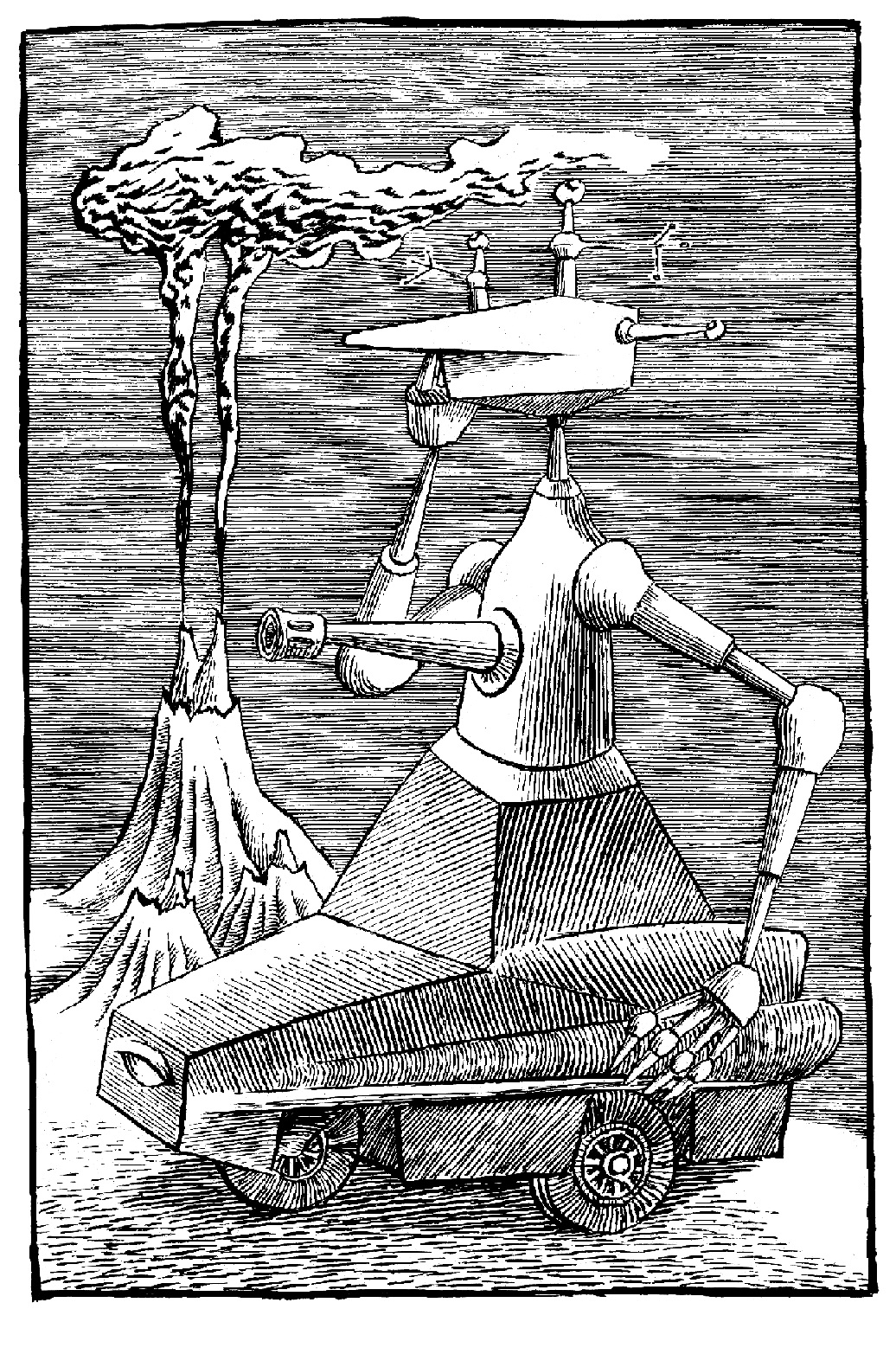
EXHIBITION “Lems Bestiary according to Mróz”
The exhibition, entitled “Lem’s Bestiary according to Mroz“, presents the results of the collaboration between Stanislav Lem and Daniel Mroz. The basis of its concept, the author of which is Janusz Gurski, professor at the Academy of Fine Arts in Gdańsk, is a reference to medieval albums presenting to astonished readersanimals such as an elephant or a camel and, alongside them, a griffin, a unicorn or two-headed inhabitants of the opposite end of the globe. This bestiary presents emancipated machines, somewhat sinister and at the same time grotesque, painstakingly drawn by the master of the brush Mroz and combined with their descriptions found in the novels and stories of the master of the word Lem. Cracow graphic artist Daniel Mroz gives the most perfect graphic form to the characters in Lem’s works. For most admirers of the writer Mroz’s illustrations, Lem’s texts have become an inseparable whole. The Sejm of the Republic of Poland declared 2021 the Year of Lem.Extremely popular among his countrymen, Stanisław Lem is also one of the most famous Polish writers in the world, translated into 41 languages and published in millions of copies.
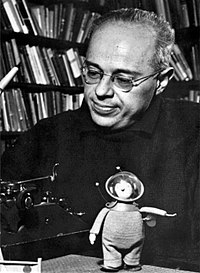
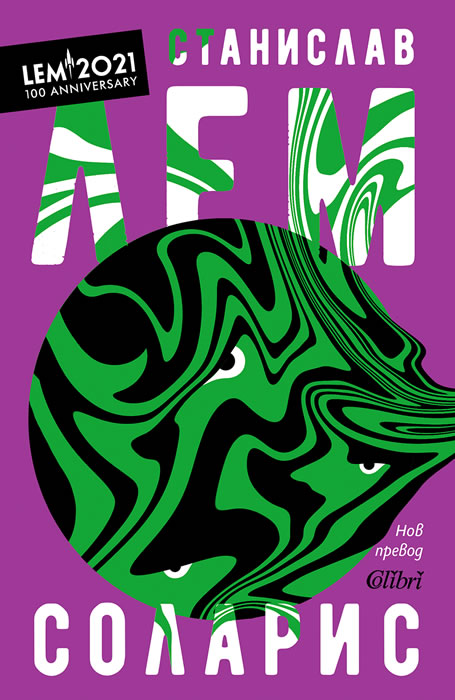
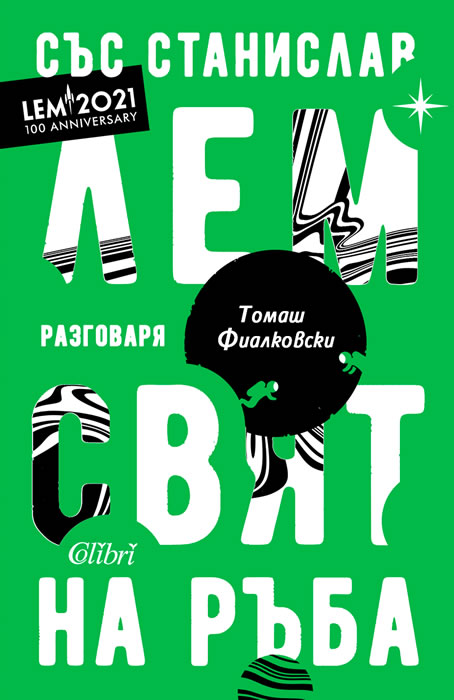
READING, 6.30 PM
Stanisław Lem (1921-2006) was a Polish philosopher and writer (fiction writer, essayist, satirist and critic). His books have been translated into 41 languages. He is the author of the fundamental philosophical work Summa Technologiae, which envisages the creation of virtual reality and artificial intelligence, and also develops the idea of human auto-evolution.
“Solaris” – the most famous novel by one of the world’s great masters of science fiction, Stanislaw Lem, belongs to the subgenre exploring contact with extraterrestrial intelligence. This work, translated into all languages, offers an original vision of the unknowable alien mind, while presenting in a unique and exciting way the drama of self-discovery and the cosmic dimensions of love. The idea of an ocean-brain, occupying the surface of the planet Solaris and capable of giving material form to human memories and thoughts, leaves neither the psychologist Chris Kelvin and his fellow astronauts from the space station described in the novel, nor the millions of readers of the Polish fiction writer indifferent. Nor the famous directors Andrei Tarkovsky and Steven Soderbergh, who adapted the work in 1972 and 2002 respectively. On the centenary of Stanislaw Lem’s birth, Colibri Publishing House offers fans of science fiction a new, complete translation of the previously published censored and abridged version of his remarkable masterpiece.
A World on the Edge – Stanislaw Lem talks to Polish critic and journalist Tomasz Fialkowski at the edge of the last century and on the threshold of the new millennium. “We are sailing down a great river towards an unknown ocean and we are only at the beginning of the journey,” says the great Polish fantasist and visionary. And he talks about his childhood, his formation as a man and a writer. The years of German and Soviet occupation, the steep road to literature, human folly, religion and science, the evils of history, the wrong ways of culture – on all these subjects the writer speaks frankly, without hiding his fears and hopes, and warning of the dangers that lurk for mankind. Where will the attempts to “repair” man and the cross between technology and biology lead us, what are the prospects for science, is its end coming… In 16 fascinating conversations, Stanislaw Lem, who was born exactly one hundred years ago and left us in 2006, once again reflects on what has fascinated him throughout his life, as well as his countless admirers throughout our “world on the brink”.
OCTOBER 8th, HOUSE CANETTI, 7 PM
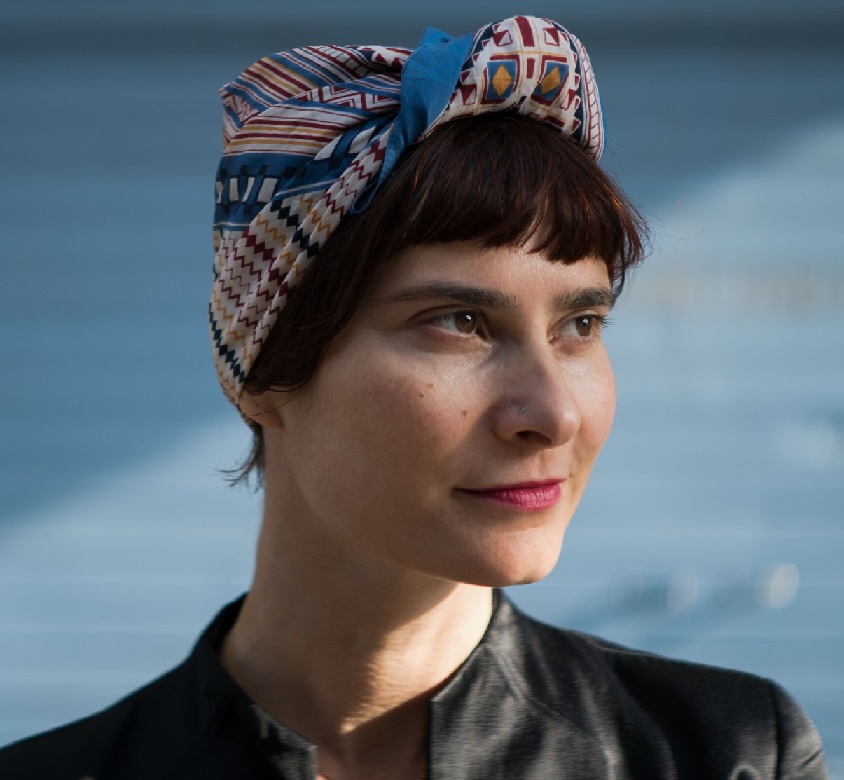
Elitsa Petkova graduated in Philosophy and Japanese Studies at the University of Düsseldorf, then in Film Directing at the German Film and Television Academy in Berlin. She has made two feature-length films, two documentaries, and a dozen short works. Her films have been presented and awarded at numerous prestigious international festivals, including the Cannes and Berlin Film Festivals.
FILMSCREENING AND DISCUSSION
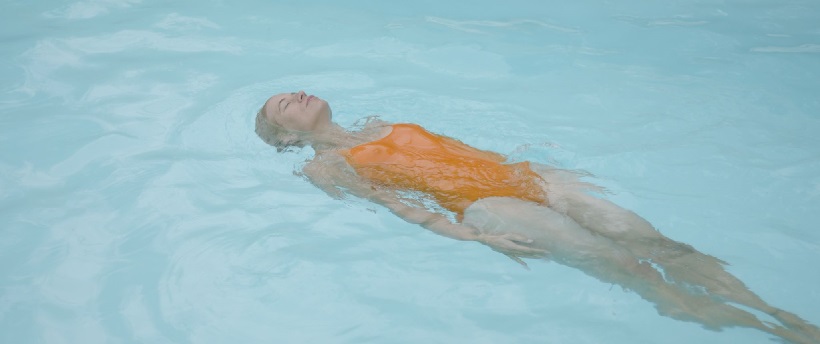
A FISH SWIMMING UPSIDE DOWN
Andrea is a woman without a past – energetic, impulsive, direct and unpredictable. Philipp and Martin are father and son – both in love with her. Andrea is expected to erase the absence of the deceased Hannah. What follows is a summer filled with longing as the emptiness within struggles for solace, commitment and security. Love is displaced by fear, and the present is burdened by notions of tomorrow. Three individuals – one house. Living beyond imposed social norms, they are constantly confronted with their human needs. The result is an inconsolable void, and the questioner’s guilt is left to roam homeless.
OCTOBER 9th, HOUSE CANETTI, 6 PM

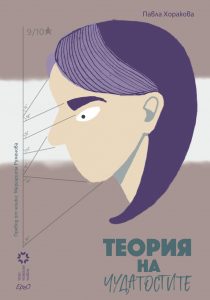
READING
Pavla Horakova (b. 1974, Pilsen) is a Czech writer, translator from English and Serbian, publicist and editor at Czech Radio. She is the author or co-author of eight books. She made her debut in 2010 with a detective trilogy for children and young adults, and participated in the compilation of two book collages of letters and memoirs of Czech soldiers who participated in the First World War. In 2018 she published her first novel for adults, Theory of Oddities, which won the Magnesia Litera Prize for Fiction in the Czech Republic in 2019.
“Theory of Oddities” describes a few months in the life of the Prague academic Ada, who studies the reciprocity of human sympathies in a fictitious scientific institute. The end of the world is approaching, which some believe should occur in December 2012, and with it comes a host of smaller endings in the professional and personal lives of Ada and those around her. The book combines a love story with a mystery, but also reflections on the meaning of existence, the nature of time, the history of Central Europe, and the strange phenomena Ada observes around her, which she tries to bring together into a unified “theory of oddities” with her characteristic humor.
OCTOBER 10th, HOUSE CANETTI, 6 PM
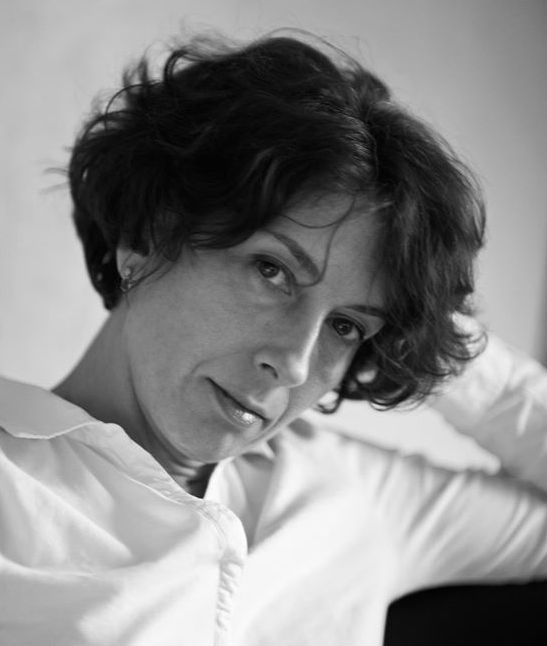
Rusana Burdarska was born in Lom. She graduated from the English High School in Plovdiv, Bulgarian Philology at Sofia University “Kliment Ohridski” and European Studies at the University of Brussels. She has worked for Bulgarian publishers and for the European Month of Culture, Plovdiv, 1999. Since 2002 she has lived in Brussels, where she has been an employee of the European Commission since 2006. She is the author of a study on post-symbolism, of an academic course on translation for the European institutions and a theoretical work on the Euroleft, of a journalistic analysis of the Roma problem and of the novel 6 sad stories, 1 funny + 1 interactive (Janet 45, 2002), which was also published in Poland and (partly) in Macedonia, and for which the author is considered the progenitor of open, amateur literature (fanfiction). The Experience is her second novel.
READING
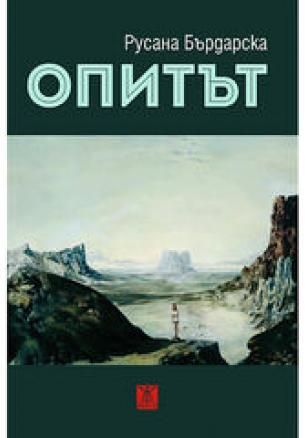
Rusana Burdarska’s The Experience is a monumental work. The book is a complex interaction between many literary genres. But it does not remain only on the terrain of literature, but also intervenes on the terrain of documentary. What is the imagination of our memory? What are the loves and divorces between the private and the public in our own fate? Between our own and others’? Which of the narrative voices from The Experience can we trust? What is the cost of the postmodern game – and when does everything become deadly serious? Rusana answers these banal questions very intimately and goes beyond stereotypes and automatisms. She is too smart a woman. And she writes terribly engagingly. The result is that we see the construction of our own time, we see it through a telescope and under a microscope. And the challenges to the intellect are so great that we forget what is what. ”
Marin Bodakov
Hairi Hamdan was born in 1962 in Der-Sharaf, West Bank. In 1967, he emigrated with his family to Jordan, where he graduated from high school. He has lived in Bulgaria since 1982, where he graduated as an engineer in 1989, is married and has three daughters. He is a translator of Bulgarian literature into Arabic and has compiled several anthologies of Bulgarian poets and writers published in the Arab world. He has won world literary awards in Egypt, Saudi Arabia and Palestine. Winner of the 2018 Pen Translation Prize and the 2018 Union of Bulgarian Translators Award. His works, besides Bulgarian, have been published in Arabic, English, French, Spanish, Italian, Macedonian, German, Ukrainian, Swedish and other languages.
READING, 7 PM
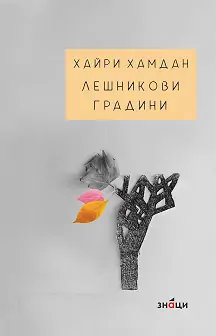
“Hazelnut Gardens“ is Hamdan’s new novel, and along its paths the author leads us with the confidence and ease of an experienced storyteller. It follows the story of a family of nine as each member takes their own direction in the world. The theme of the day (of the decade, of the century – at least so far) – multicultural dialogue in an age of globalization – is also at the forefront here, but it is not examined through the persistent, by now painfully familiar stereotypes. In Hamdan’s novel we encounter unconventional characters and entire storylines, forcing us to rethink the clichés through which we accept ‘different cultures’. – Ivan Langev
OCTOBER 11th, HOUSE CANETTI, 6 PM
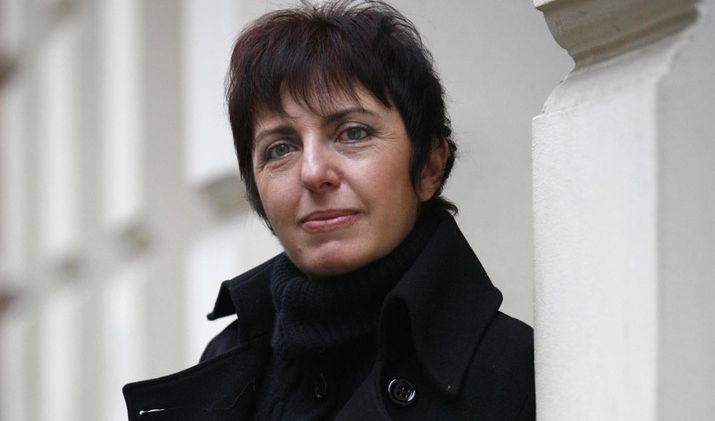
READING
A group of women, whose men have been murdered, walk in the icy February dawn towards the murder scene. It is snowing. The women do not speak. They come not to herald the good tidings, but to see the pit where the bodies of the men and their fathers are covered in ashes. The snow does not stay on this black circle. It melts. Everything around is white, but this circle remains black.
A novel about three women and a child going through difficult events in our history. They are struck by the totalitarian regime established through the Soviet occupation after the September 9 coup. All of us born before and after ’89, all of us who have something in common with Bulgaria, are struck by these events just as we were by the Chernobyl accident. The scale of the damage is only beginning to emerge. This is sadly known to us all.
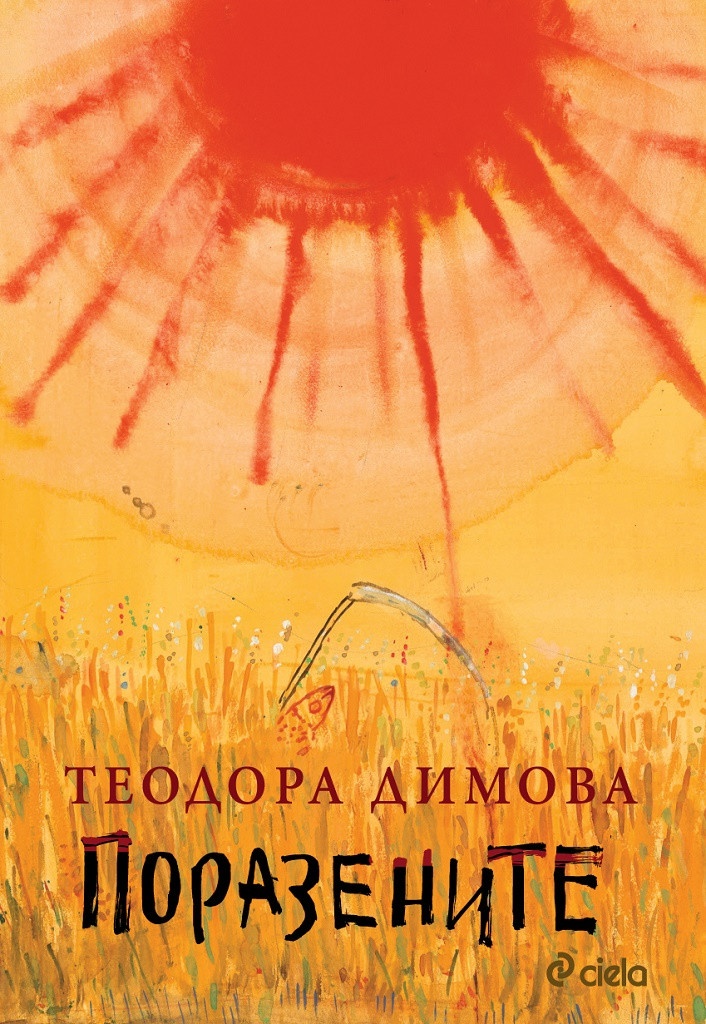
OCTOBER 13th, HOUSE CANETTI, 6 PM
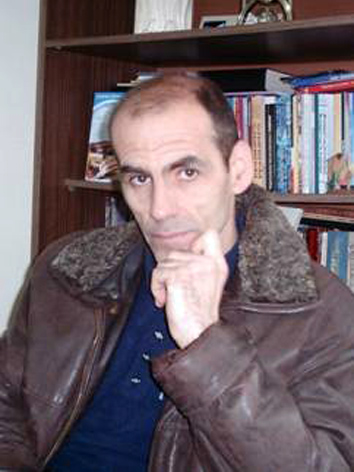
Ivan Sukhivanov (Ivan Georgiev Ivanov) is one of the iconic personalities in the literary life not only in Burgas, but also in the country. He is the author of a number of objective critical analyses in the field of contemporary literature. Born on September 6, 1961 in Burgas he graduated in Bulgarian philology, worked as a lecturer in anthropology and folklore at Burgas Free University.
Publishing poetry, short stories and criticism, he also is the author of such books as “Lacuni”, which won the Pegasus Prize (1997), and the literary prize for poetry “Nikulden” (2000). “Short Stories” was among the nominees for the annual awards of the Association of Bulgarian Writers (2005). “Moves of the Imagination”, “Exile” and “Tommy. Night Shift” have been awarded the Petko Rosen and Hristo Fotev prizes at the Annual Literary Awards of the Burgas Municipality in 2009, 2010 and 2013, respectively; and the short story collection “Escapes” was awarded the Pegasus prize in 2012. In 2016, his poetry book “Silent Cinema” was awarded the National Prize in the Hristo Fotev Poetry Competition.
READING
Hendrix
In 1973 I was 12 when I heard Jimi Hendrix’s guitar for the first time… but not on Bulgarian radio, which, apart from Shumete debri i balkani and Gyurga Penzhurova, also played Bulgarian pop. We listened to rock, though – on the Metronome programme of the Romanian section of Radio Free Europe. The emission was muffled by our socialist translators, so the sound was fading, the VEF was crackling furiously, but we still managed to hear what we needed to hear and to feel the fire, as the denounced by fascism ideologist Nietzsche, said… The Metronome was broadcast every Saturday from 2 to 6 pm… read more
Hendrix and more freedom
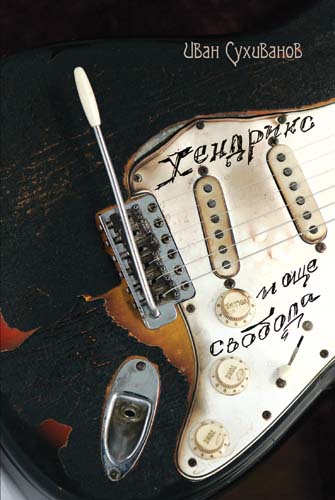
OCTOBER 14th, HOUSE CANETTI, 6 PM
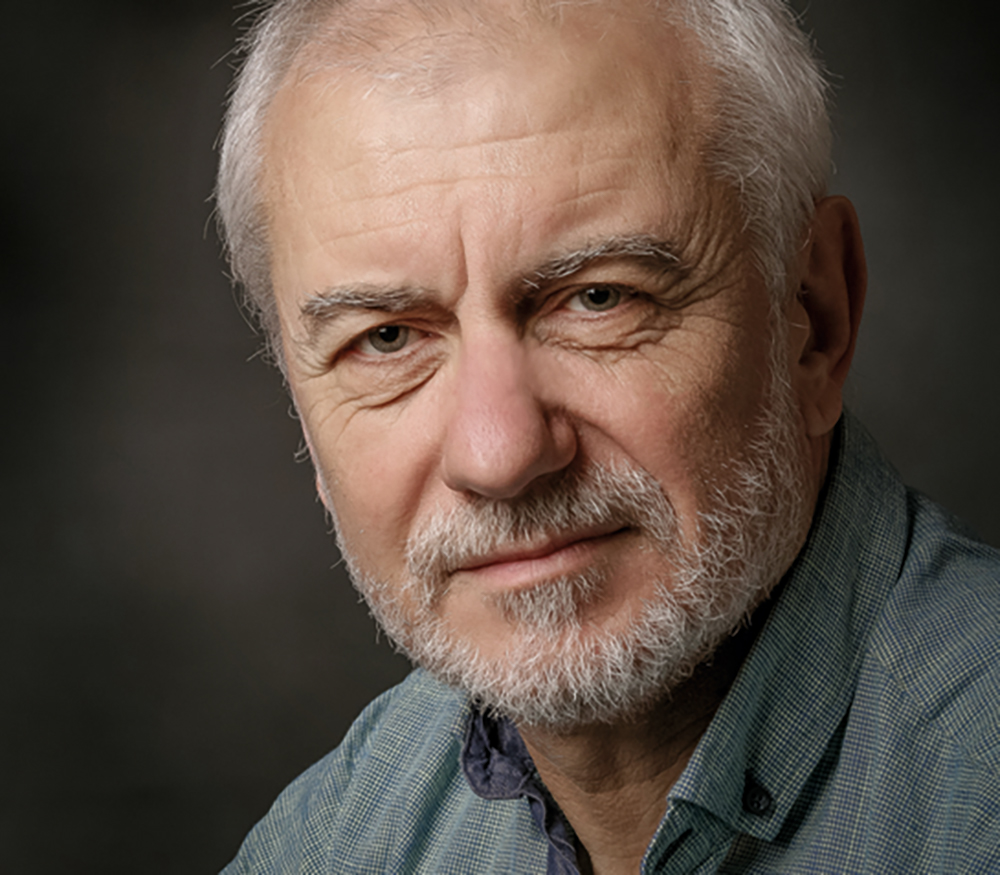
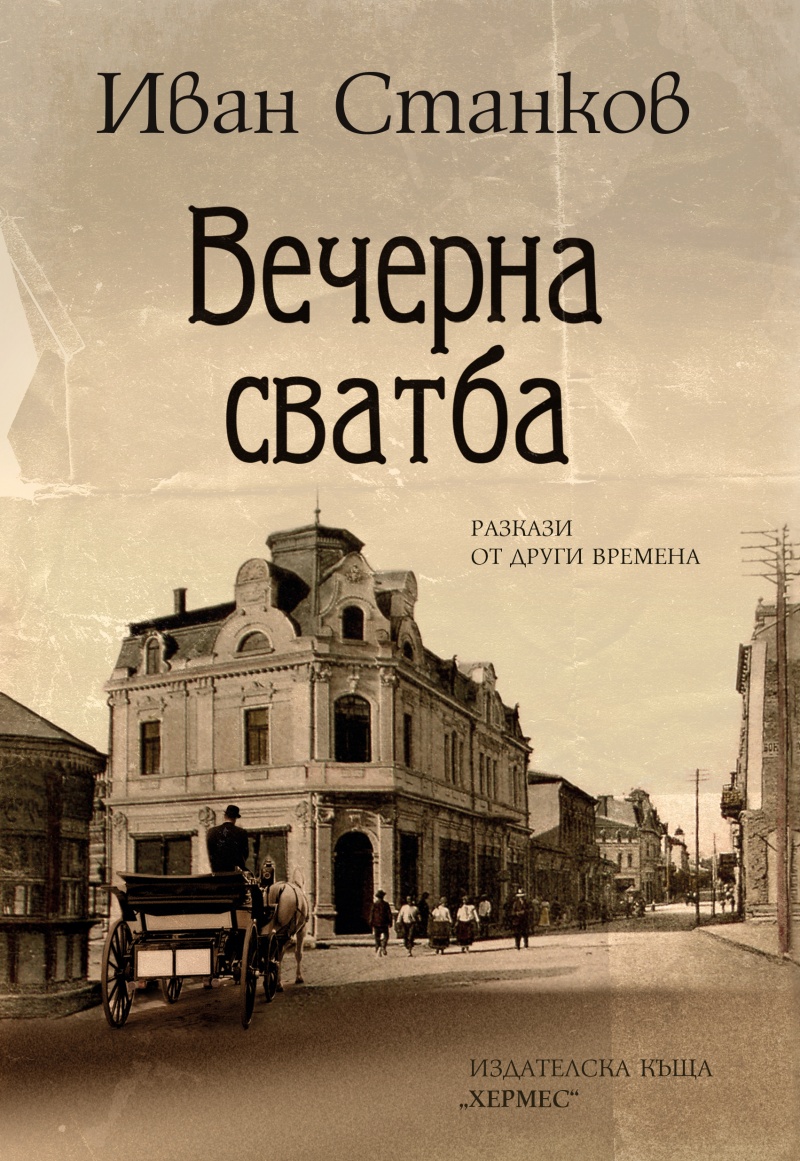
READING
Ivan Stankov is a writer and translator. He is a professor of Bulgarian literature at the University of Veliko Tarnovo. He was born in 1956 in the village of Gomotartsi, Vidin district and graduated in Bulgarian philology in 1982. As an author he published monographic studies on the works of Assen Raztsvetnikov, Yordan Yovkov, Dimitar Talev, Vasil Popov, Boris Hristov, etc., and translated books by Mircea Kartarescu, Dan Lungu and others. In 2014 he published the triology of short stories. Author of the short story trilogy “Memories of Water. Dm” (2014), “Streets and Ships. Gm” (2017) and “Names under the Snow. А7” (2019). “Evening Wedding” is his fourth book of fiction.
Stories from other times. Narrative about Ruse.
It is surprising, impressive, exciting how Ivan Stankov describes and fantastically brings to life eras in the life of this city, where many of us spent our childhood, others perhaps their whole life. No matter how long we have lived in this city, and by this river, which we still argue about whether it is blue or white, we are confronted with its incredible true past, connected to certain buildings, streets, places and most of all people.
Most of the characters in some form really existed a hundred years ago. Thieves, young widows, high school girls, investigators, brewers, saints, suicides, acrobats or prostitutes – they are all from the biggest Bulgarian city on the Danube. They are concerned with the same issue – love. Love finds them and descends upon them like a revelation, but also like a curse. And man proves weak to such gifts. Both the dead and the survivors share with their reader: there is no way out of love, as there is no way out of death.
OCTOBER 15th, HOUSE CANETTI, 6 PM
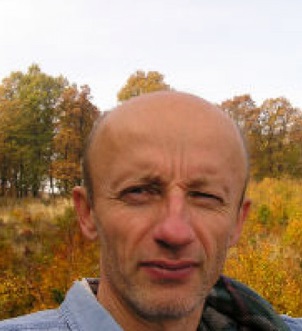
Viktor Horváth was born in 1962 in Pécs. He was a potter, teacher, and babysitter, then between 2003 and 2006 he studied for his Ph.D. at the University of Miskolc. Since 2003 he has been teaching the theory of poetic structure and the history of form in medieval and late-medieval times at the University of Pécs. He is a translator from English, German, and Spanish. He won the European Union Prize for Literature for his novel Turkish Mirror 2012. His guidebook, Over There, or New York Variations (Át avagy New York-variációk) appeared in 2004.
READING
“My Tank” is a historical novel and covers the events surrounding the 1968 attack on Czechoslovakia by Warsaw Pact troops. The protagonist takes part in them as Janos Kadar’s translator and unwittingly becomes a witness and accomplice of key moments: from the entry of the “brother armies” into Czechoslovakia to the meetings of the communist leaders. With his characteristic irony, Horvath does not disappoint his readers this time either. The children’s game of tanks becomes real, but the characters cannot let go of their infantilism and the live-action crucial moments of European history become a farce. „My Tank“ is a well-written and important book that attempts to peer into the mechanisms of communist rule in a playful way. The answer it gives is very humorous and equally serious.
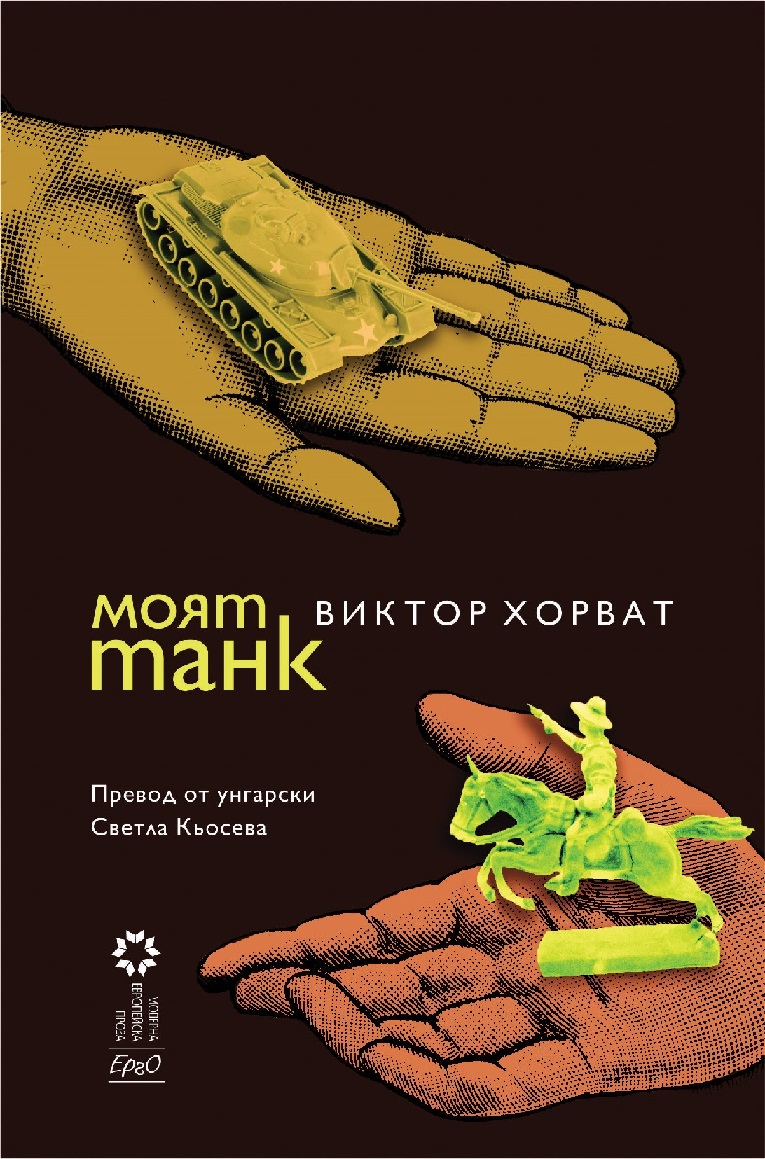
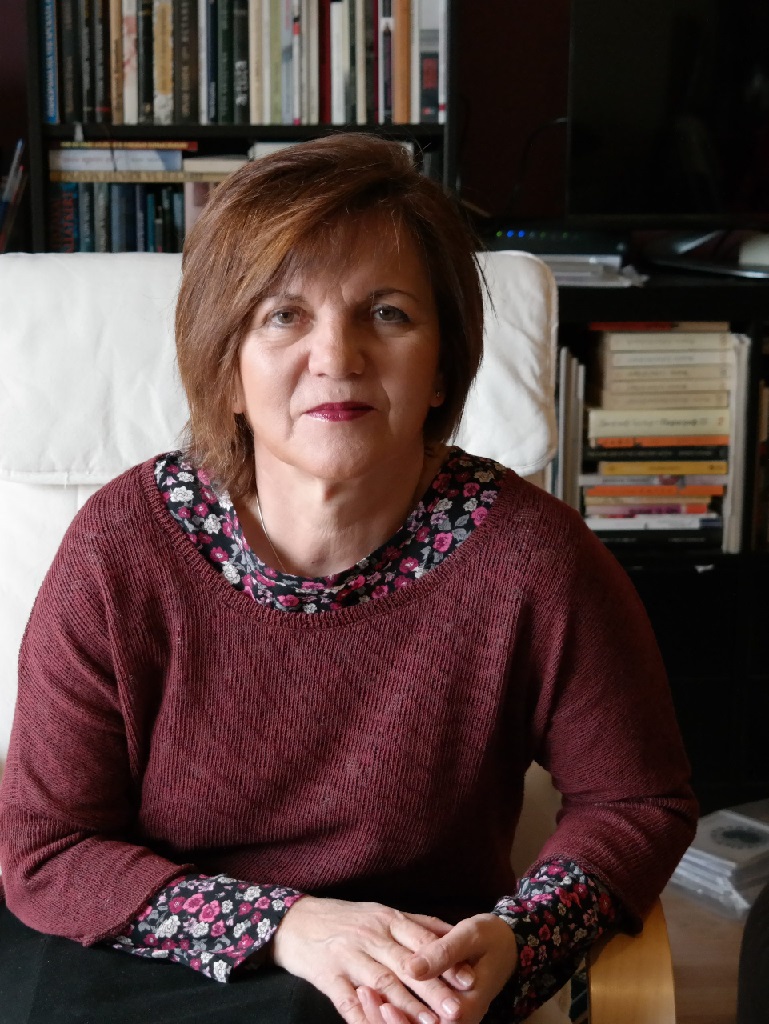
Svetla Kyoseva lives and works in Budapest. She graduated in History and Philosophy at the University of Sofia. She is the editor-in-chief of the bilingual magazine for culture and social life “Hemus”, which has been published since 1991 in Hungary. She is the editor of a radio programme in Bulgarian at the Hungarian Radio. She translates contemporary Hungarian poetry and prose. Her translations have appeared in Bulgaria in over 150 publications, more than 20 independent books (Imre Kertész, Peter Esterhazy, Peter Nadasz, Lasno Krasnahorkai, Adam Bodor, Endre Kukoreli). Her translations have been included in almost all Bulgarian anthologies of Hungarian poetry in recent years.
OCTOBER 16th, HOUSE CANETTI, 6 PM
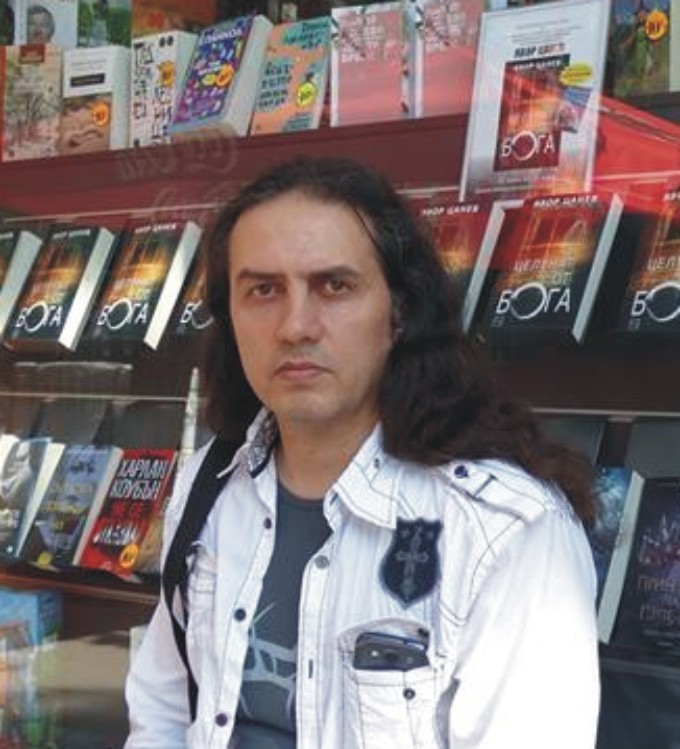
Yavor Tsanev was born in 1971 in Ruse. He graduated in Sofia and University of Veliko Tarnovo. Until 2009 he worked at the Regional Library Ruse “L. Karavelov” in various positions. He is owner of the publishing house Gaiana. Since 2012 he has been publishing the periodical for science fiction, fantasy, crime and horror stories “Drakus”. He has won prizes in fiction competitions. Among his numerous awards are the Special Prize for a short story up to 1000 words in the name of Hagop Melkonyan (for the short story “The Village”), 2013; the Svetlostroy Prize for prose (for the collection “Wine for the Dead”); “Home, sweet home!” – short stories (2015); “Kissed by God” – short stories (2018), “Villains” – children’s horror novel (2018) and many others.
READING
“Dracus” is a journal of science fiction, fantasy, crime, horror, mystery and adventure stories. The first issue was printed in 2012, and it was published four times a year until 2019, and then semi-annually, but with an increased volume and changed format. The magazine is oriented towards Bulgarian authors and also offers translations of foreign authors – classics in the listed genres. It periodically organises competitions, as a result of which the winning stories are published in separate thematic collections. At the end of 2014 a book collection in the name of the magazine began to be published, presenting Bulgarian authors of science fiction, fantasy, horror – “Dracus Collection”. It has been repeatedly named the best science fiction magazine by fans of the genre in Bulgaria.
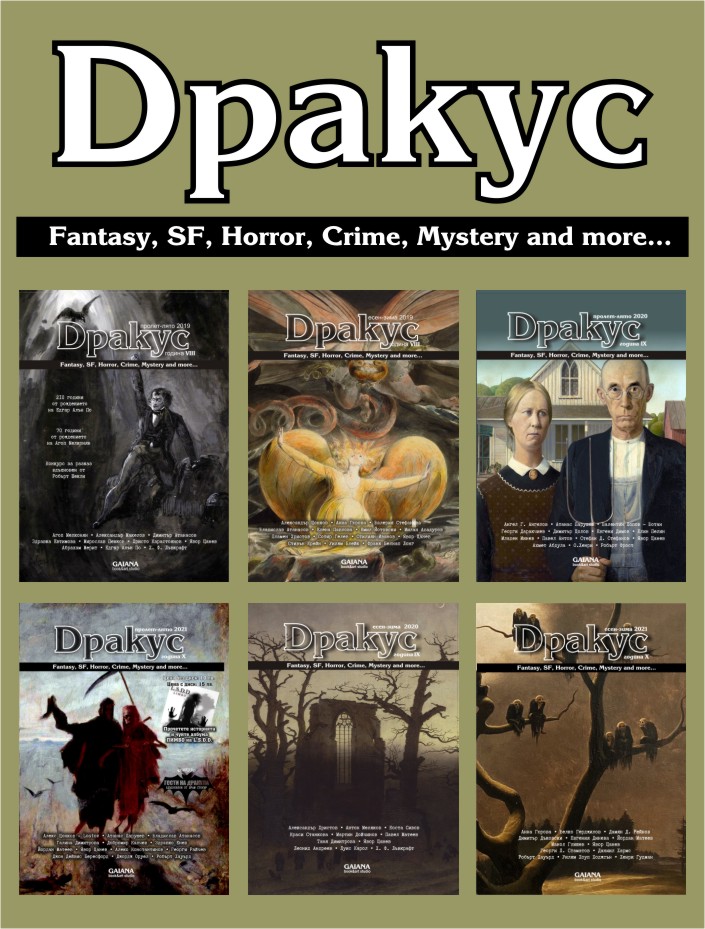
OCTOBER 17th, HOUSE CANETTI, 5 PM
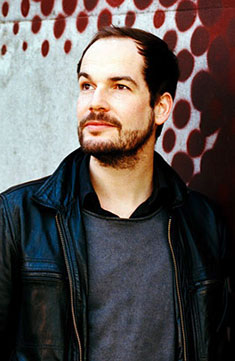
Max Czollek was born in Berlin in 1987. He is a member of the poetry collective G13 and co-editor of the journal „Jalta – Positionen zur jüdischen Gegenwart“. Together with Sascha Mariana Salzmann, he curated the Congress for Disintegration in 2016 and the Days of Radical Jewish Culture at the Maxim Gorki Theatre in 2017. The poetry collections Druckkammern, Jubeljahre and Grenzwerte were published by Verlagshaus Berlin, and the non-fiction book Desintegriert euch! was published by Hanser in 2018.
READING
Max Czollek’s startling thought-provoking book that changes the debate about integration and belonging – a wild testimony to the Jewish scene
Max Czollek is thirty, Jewish and angry. Because strange rules prevail in this country: A good migrant is one who speaks enlightenedly about women’s oppression, Islamism and democracy. A good Jew is one who always gives answers about anti-Semitism, the Holocaust and Israel. This farce stabilises the image of a purified society – while a nationalist party celebrates its successes. Max Czollek’s polemic outlines a strategy to end the theatre: Disintegration. Disintegrate yourselves! is a rallying cry of the new Jewish scene and at the same time an attack against the vision of an all-singing, all-doing “Leitkultur”. This furiously contentious book is the polemic of the hour.
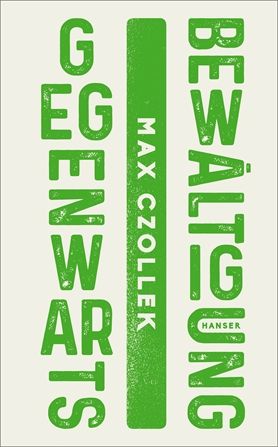
OCTOBER 17th, HOUSE CANETTI, 6.30 PM
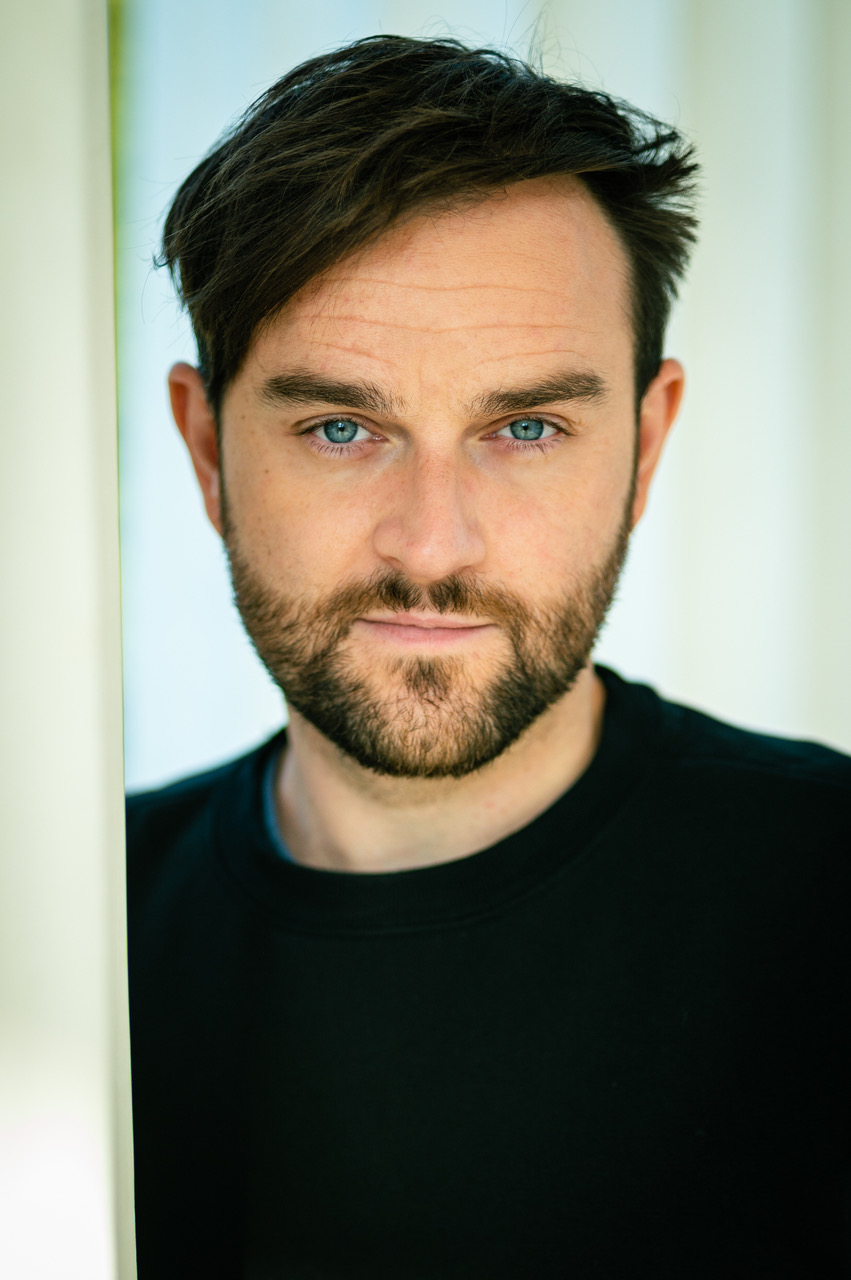
Thomas Perle was born in 1987 in Romania. He emigrated with his family to Germany after the fall of the communist regime. He studied theatre, film and media at the University of Vienna, graduating in 2015. While studying, Perle worked as an assistant director at the Schauspielhaus Vienna. In 2013, Perle won the exil-Literaturpreis for his work “we left because everyone left.” Perle has been repeatedly awarded and invited to fellowship and residency programs. In 2016 he presented a play of the same title at the State Theatre in Nuremberg, and In 2018 his book was published by edition exil. 2019 his play „karpatenflecken“ was awarded with the Retzhofer drama prize, which will have its world premiere at the Deutsches Theater Berlin and Burgtheater Wien in the season 2021/22.
2021 Residential Fellowship “Sharing Future” of the MDEC, with the support of the Danube Rectors Conference (DRC)
LITERARY READING WITH THEATRE PERFORMANCE
DANUBE WAVES
The Danube. The longest river in Central Europe. 2,850 km long, it has been flowing for thousands of years, watching us humans. From the Black Forest to the Black Sea. No other river in the world has such socio-cultural diversity; multi-ethnic, multi-lingual, the Danube region stretches across the whole of Central and South-Eastern Europe.
A long and eventful history. An existence as the longest border, as a trade and transport route. It can tell the story of empires, monarchies, religious conflicts, the break-up of great empires, wars, death, resettlement, exile and emigration.
Thomas Perle is this year’s Artist in Residence of the International Elias Canetti Society and in his emerging drama „donauwellen“ (danube waves) he lets the Danube and voices of the Danube have their say in several languages. During his stay, the play will continue to grow on the banks of the Danube. Inspiration will be drawn from it.
Text fragments of the emerging drama will be staged on that day.

